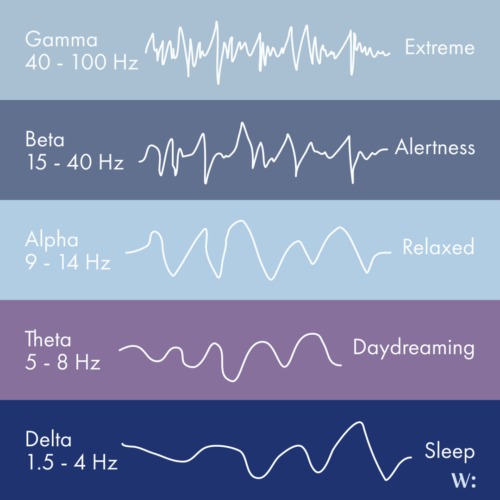Sharpen your critical thinking by understanding the Barnum effect
Imagine you've taken a personality test, and It suggests that you're a thoughtful individual who cares deeply for those closest to you, and that you often act in accordance with your personal convictions. Does this resonate with your self-perception? Maybe. Or maybe… your mind is just shaping your belief in them? This phenomenon is known as the Barnum effect, and it offers us a fascinating opportunity to explore how we can become more mindful of it, nurture our critical thinking abilities, and embrace our personalities for what they really are.

What is the Barnum effect?
In a nutshell, the Barnum effect is when we believe some description of our personality is very accurate, even if it has been generated randomly. Take this random ChatGPT-generated description of someone’s personality:
"You are defined by an insatiable curiosity, fearlessness, and a love for embracing the unknown. You thrive on taking risks and seek personal growth through adventurous experiences. While independence and adaptability are strengths, you should be mindful of impulsivity and the importance of occasionally embracing routine."
Sounds a bit like you doesn’t it? And it very well might be! Or you may think: No, that’s not really me. But the Barnum effect tells us that on average, many people are likely to say this is an accurate description of their personality.
"The Barnum effect is a quirk of our brains that makes us believe that some description of our personality is very accurate, even if that description is very general, vague or even random."
Impacts of the Barnum effect
You might have already guessed where the Barnum effect is common – in horoscopes. But also in persuasive marketing, personality tests and fortune-telling. And all of those things are pretty harmless, and sometimes even very useful and fun and insightful. But sometimes, they can lead people astray.
Persuasive marketing may lead us to buy things we don’t really want to because the marketing speaks to “who we are” and makes us believe that a person like “me” should definitely have that expensive thing. Or for example, aligning your romantic partners with the help of astrology may lead us to dismiss potentially really great people in favour of those that we match with based on stars.
"The Barnum effect can often be seen in horoscopes, personality tests, marketing and fortune-telling."
The Science behind the Barnum effect
The human brain is an effort-minimizing machine. We walk, talk, and breathe without having to focus on where the right foot goes or how to shape your mouth to say the letter “S”. And that’s a great thing! We would go crazy if we had to consciously think about everything around us.
"Most of the time our brain has to assume things, fill in the gaps and just accept the information we receive."
And sometimes that system goes wrong.
Confirmation bias
Celeste is an avid advocate for seaweed, and she knows how many health benefits they can have. She overheard some news about how a species of seaweed has been shown to have anti-ageing effects. She leans towards agreeing with that piece of knowledge because it aligns with her pre-existing beliefs about seaweed. In reality that anti-ageing seaweed fact would have been debunked a few weeks later, but she doesn’t notice the news about the debunking. Now she has a false belief about seaweed which was created by her bias of confirming something she already believes in.
Subjective validation
This is a less trendy phenomenon but an important one nonetheless. Jamie did a personality test. He answered up to 100 questions, got a bit frustrated by the end, but now he’s finally ready to hear about who he is. The results say: Your introspective nature leads to profound insights and a unique perspective on life. He believes this because he likes what he sees. We don’t know if that subjective statement is true or not, but Jamie automatically validates and accepts it. Because it’s personal and presents him in good light.
These two tendencies of our brains – the confirmation bias and subjective validation – make it really easy to accept positive information about ourselves, especially if we already somewhat believe it. All of this sets the stage for the Barnum effect. Look at the list below and see which of the following you agree with:
- You have an insatiable curiosity about the world and a desire to discover new places, people, and experiences.
- Your rich inner world often translates into artistic or creative endeavours where you express your thoughts and emotions.
- You’re not afraid to take risks and push boundaries. Adventure is your middle name, and you embrace challenges with enthusiasm.
- Your adaptability helps you thrive in unpredictable situations. You see change as an opportunity for growth.
- Your deep understanding of others’ emotions allows you to connect on a profound level and provide comfort during times of distress.
Would this be your personality type? Now imagine if instead of us asking you this question, it would be a statement – This is your personality type. And imagine if these results had a believable explanation behind them – the 100 questions you answered or the stars you were born under. It would make these bulletpoints much more believable.
By using our brains’ innate ability to minimize effort and accept positive information about us, and by adding a tangible enough explanation to all these results, we create the Barnum effect – we start thinking that all this info is accurate and personal, and true. Even though it’s mostly random.
"It’s really easy to believe that we are a person of detail (for example) if a personality test tells that in a good light, and we already have a hunch about it."
The Barnum effect is not perfect
For the record, we’re not saying personality tests or astrology are bad or useless. They can be a great way of self-discovery, something that brings hope, insights and joy. One study found that undergraduate students who engage in MBTI personality tests are less anxious and less depressed, plus they feel better in general. However, we have to be aware that they work in part due to them exploiting our brains’ imperfections.
The Barnum effect is also not bulletproof. People do have some idea about what their personality type is, and they can pinpoint some of their personality traits, as one study has found. They can do so with bare and unflattering personality tests that researchers use (NEO-FFI) to actually assess personality, but what’s interesting is that they can’t predict which astrological summaries are theirs.
"One study shows that people can pinpoint which personality traits they have with some accuracy, but not when it comes to astrological summaries."
Reinforcing critical thinking skills
The Barnum effect shouldn’t be seen as a human flaw, but perhaps more as a human quirk – a fascinating thing that our brains can conjure up. Still, it’s good to be aware of it when we make our everyday decisions.
When we receive a piece of information it’s good to have a healthy dose of scepticism. But not just any scepticism.
- When information is presented in good light, and is meant to be personal, it’s good to turn on your critical thinking machine. That’s being conscious of subjective validation.
- When the information you’re taking in aligns with what you already believe it’s good to be aware that it might not be true (even though your brain will tell you that it is true). That’s being conscious of the confirmation bias.
Just by being aware of the confirmation bias and subjective validation, we can avoid the Barnum effect and realize that some information that seems to accurately describe us might be quite random and generalized.
We can grow, and develop our critical thinking skills. And we can still enjoy the fun that comes with personality tests and astrology, while also realizing that the reason why we’re so fascinated by it has more to do with our brain and not with what’s actually written there.
More from the magazine
Selected stories from our Team








